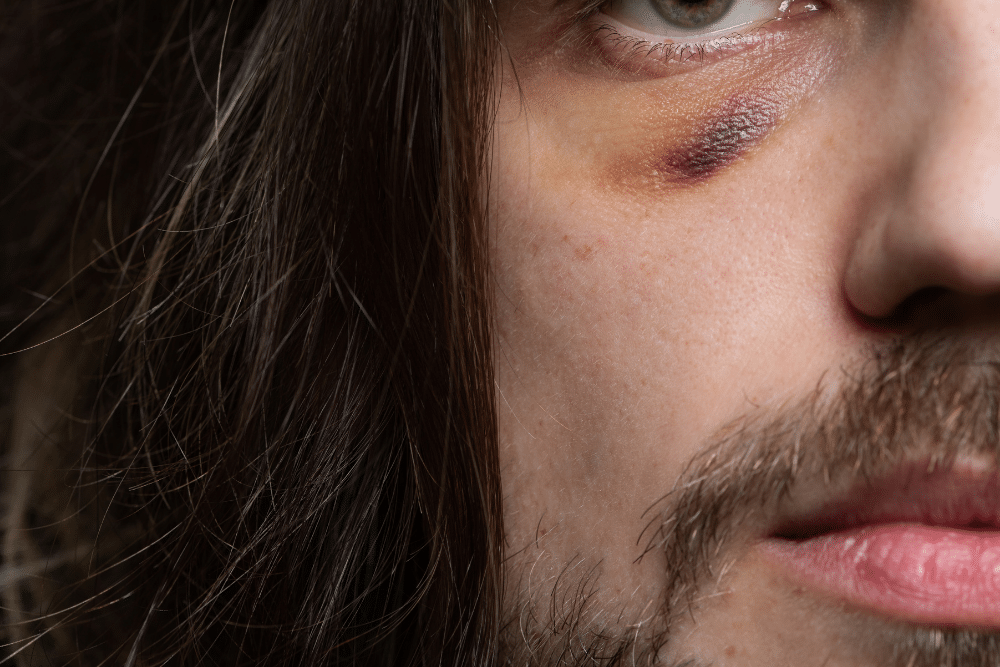To many, COVID-19 has sheltered them in a state of boredom, confinement, and spiritlessness. Others, however, have been imprisoned in a state of danger, uncertainty, and domestic abuse at the hands of their partner.
Domestic abuse is more prevalent in situations involving drug and alcohol abuse, unemployment, or emotional isolation, all of which have drastically increased since the start of the pandemic. In just 38 counties of North Carolina, the number of domestic violence reports have increased — from 22776 before the pandemic to 24760 after it began.
While domestic violence cases most often involve female victims, a meta analysis of filed domestic abuse found that up to 20.3% of domestic violence cases involve a male victim. That’s more than one in every five cases!
In this post, we will discuss why it is that men may be less likely to report domestic violence and how law enforcement often automatically assumes the male to be the aggressor in male-female domestic violence altercations.
What Does North Carolina Domestic Violence Look Like?
Domestic violence exists on a spectrum — it is not simply defined as male-on-female physical aggression. In some cases, domestic violence doesn’t even have to involve physical harm. Domestic violence most broadly is defined as an imbalance of power and control that is leveraged in order to intimidate or control the other partner.
Any of these behaviors from your partner should be considered immediate red flags:
- Calls you names, insults you, or puts you down
- Prevents you from going to work or school
- Stops you from seeing family members or friends
- Tries to control how you spend money, where you go, or what you wear
- Acts jealous or possessive or constantly accuses you of being unfaithful
- Gets angry when drinking alcohol or using drugs
- Tries to control whether you can see a health care provider
- Threatens you with violence or a weapon
- Hits, kicks, shoves, slaps, chokes, or otherwise hurts you, your children, or your pets
- Forces you to have sex or engage in sexual acts against your will
- Blames you for his or her violent behavior or tells you that you deserve it
- Threatens to tell friends, family, colleagues, or community members your sexual orientation or gender identity
This list, of course, is not exhaustive. There are many different ways that power imbalance can manifest itself in an abusive relationship, and abuse against men can often look quite different than it does against women.
Misunderstood and Underreported: Men as Victims of Domestic Violence
Domestic violence is considered a public health crisis, an epidemic that experts fear is underreported and misunderstood in the case of male-victim abuse. This is partially because of societal factors that may shame men for admitting victimhood and partially because male-victim domestic abuse may be hard to identify.
Because men are traditionally thought to be physically stronger than women, men might
- be less likely to report domestic violence in their heterosexual relationship due to embarrassment
- worry that people will minimize the importance of the abuse because they’re a man.
Similarly, a man being abused by another man may refrain from reporting domestic abuse because of expectations about masculinity or a possible unwanted exposure of his sexual identity. No matter who you are, though, you have rights, and no one should have to live feeling unsafe.
NC Law Enforcement and the Common Assumption of Male Aggression
Unfortunately, when male victims choose to speak out against their abusers to law enforcement or through abuse hotline resources, it sometimes ends up negatively impacting the victim. How so?
Male victims may be questioned about the validity of the abuse and potentially even asked if they instigated it. When male victims present domestic-violence induced injuries to health-care providers, it is often not common practice to first ask if they are in need of domestic violence related services.
This is all to say that if you feel ready to open up about your abuse, it might be wise to start with someone you trust: a friend, a neighbor, a spiritual leader, or a family member. From there, create a safety plan in which you are prepared for possible outcomes.
If you or someone you love was charged with domestic violence despite being the victim, know that you’re not alone — and that you can fight back. Convincing North Carolina law enforcement that you are the victim rather than the perpetrator may be more tricky as a man, but it can be done.









